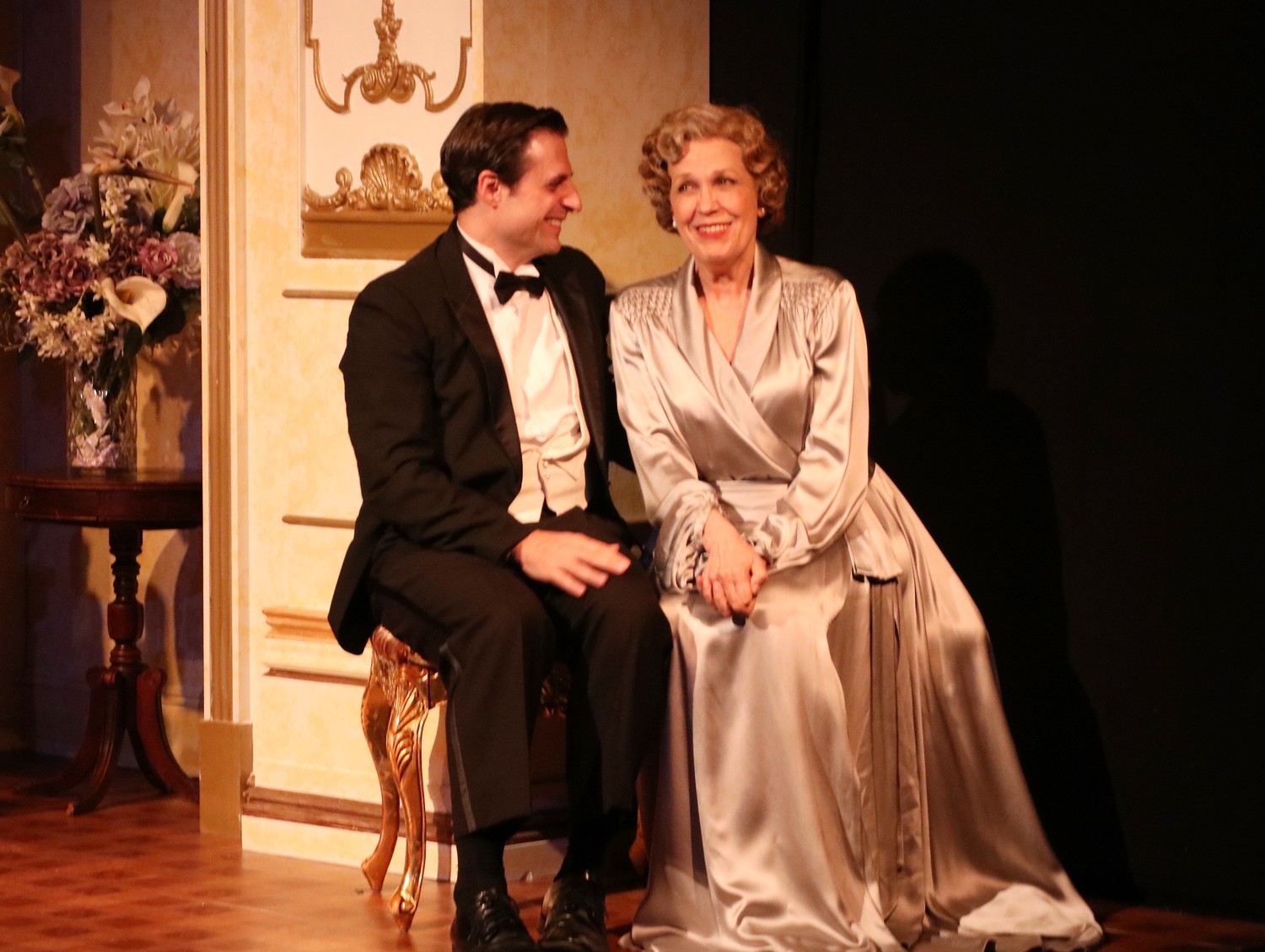Review: SOUVENIR at Penguin Repertory Theatre
 Singing poorly is an easy task for those of us who can't sing. But it's daunting task to singers who have spent a lifetime refining their vocal production. As Florence Foster Jenkins Debra Jean Templin puts aside all of her skill and technique to become the legendary tone-deaf diva, society matron cum opera singer.
Singing poorly is an easy task for those of us who can't sing. But it's daunting task to singers who have spent a lifetime refining their vocal production. As Florence Foster Jenkins Debra Jean Templin puts aside all of her skill and technique to become the legendary tone-deaf diva, society matron cum opera singer.
The sound she is required to produce is something like a cat being run over by a lawn mower. The word dulcet might be considered the diametric opposite of the sound she produces. But, Ms. Templin manages to do so with great facility - no mean feat! Despite the harshness of her singing, she manages to draw forth a charming almost endearing warmth which ultimately allows us to root for Ms. Foster Jenkins throughout all of her crazy endeavors. That she had good intentions was never in doubt - she donated the proceeds from all of her "recitals" to charitable causes, including the proceeds from her infamous Carnegie Hall concert.

It's a role that a singing actress can really chew on, but it's not enough to sustain an entire evening. Playwright Temperley "goes to the well" one time too often with the awful singing. It becomes something of a one-trick pony conceit that gets old quickly. Luckily, Jonas Cohen in the role of her accompanist Cosme McMoon, provides enough laughs and ultimately pathos to balance the show. The story is told through his recollections and although he begins as a total hired gun, it become clear very quickly that a deeper and richer bond is growing between he and Jenkins. Their relationship is at the heart of the show, and it's Cosme who distills for the audience Jenkins's almost manic obsession into a more well-meaning, and worthy endeavor.
The first act of the show suffers a bit from a slightly disjointed and episodic style - the episodes coming in a somewhat forced nature: his employment, her first recital, her recording contract, etc. The second act is more focused and dramatically smooth as the two focus on a single goal: her legendary Carnegie Hall concert.
Virtually all of Cosme's narration is delivered from a piano bench in a bar on the 20th anniversary of Jenkins's death, and it provides the structural thread to the narrative - but at the same time it can't help but increase the episodic feeling of the scenes. He feeds the cue and in comes Florence with her latest bird-brained idea.
To be sure, the play is enormously entertaining and the performances are uniformly first rate, but the story is predictable - it's just a matter of time before Cosme loses his temper and explodes on Florence; how many times can she ask him if he would ever lie to her; and the supposed crushing moment when harsh reality sets in is rendered less heartfelt but its inevitability.
Director Stephen Nachamie does a superb job of smoothly transitioning between past and present and keeping the audience's sympathy for both Florence and Cosme aflame throughout. David Goldstein's music-room set doesn't quite work for Cosme's contemporary 1964 bar gig, but it is spot on for Foster-Jenkins ritzy apartment.
Templin and Cohen have a delightful chemistry which provides the laughs, the heart and the heartbreak of the show. Both draw a clear line between comedy and farce, taking Jenkins's delusions right to the edge without quite going over the top. And in the end, the audience is totally on her side and feels for her, knowing full-well that her quest is purely quixotic.
"What matters most is the music you hear in your head," says Jenkins. And that is the way the show leaves the audience - smiling and happy.
"SOUVENIR" a comedy by Stephen Temperley
Penguin Repertory Theatre
-Peter Danish
Reader Reviews

Videos

